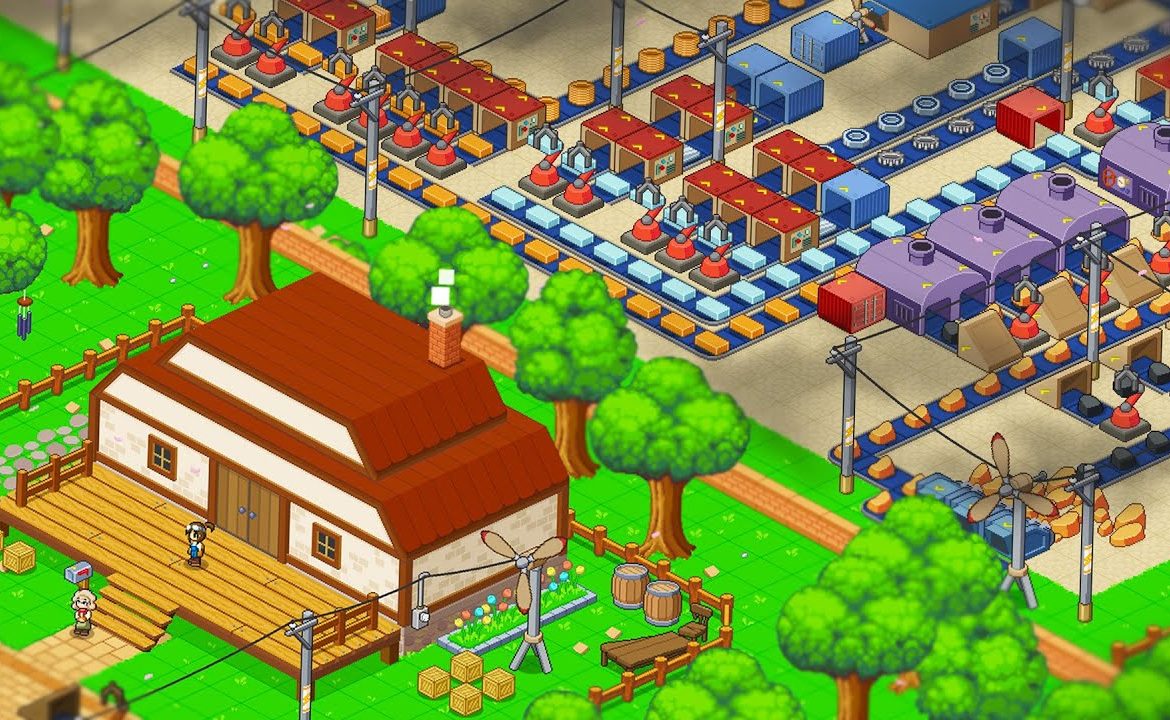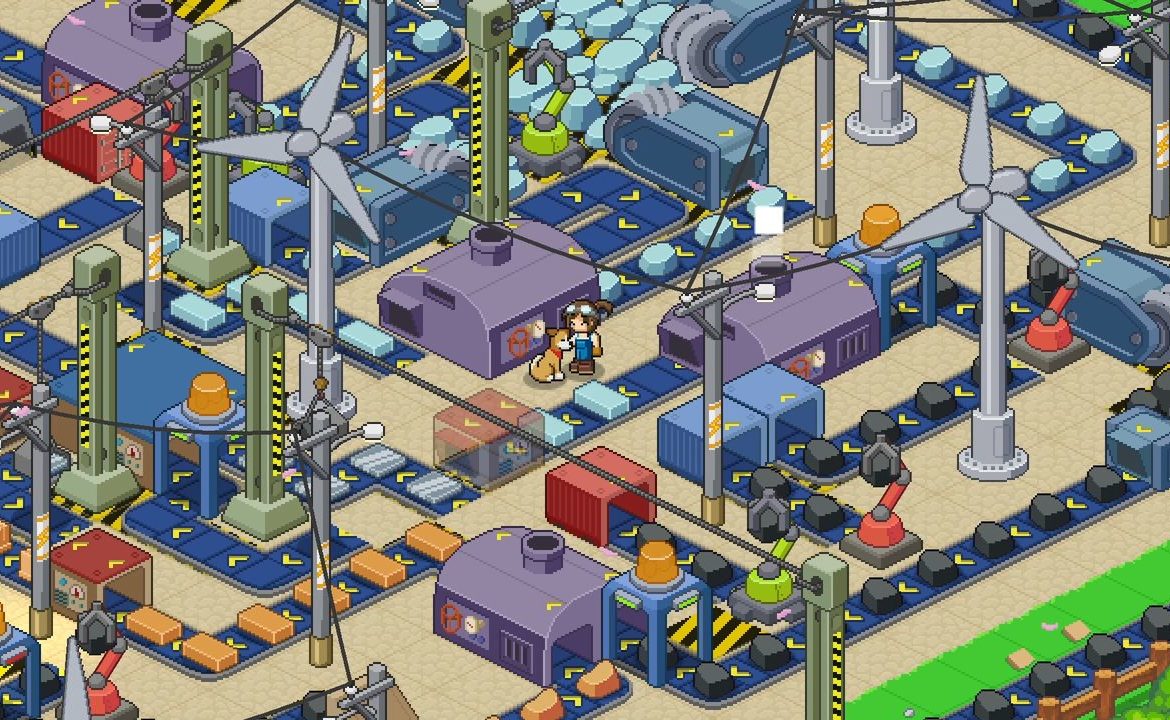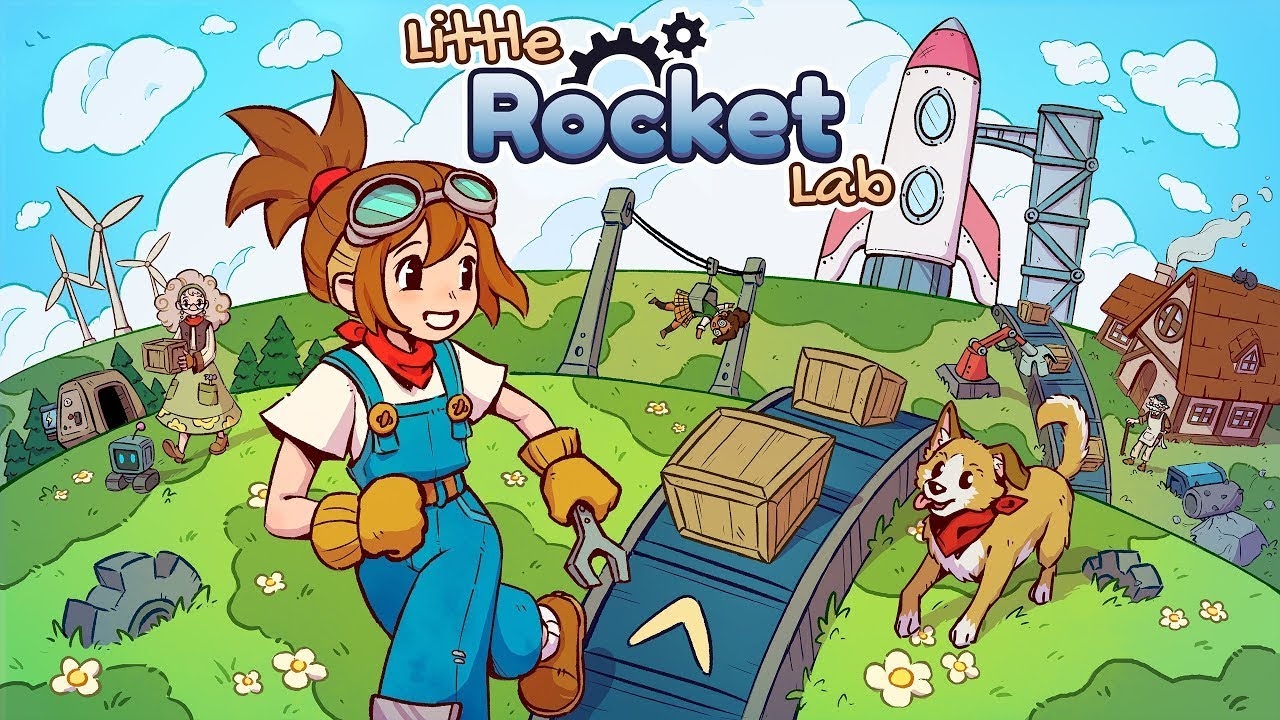Building machines can be a drag. Primarily because I’m not all that good at it. Fortunately, video games exist. And in video games I can pretend I’m a master engineer genius who can build rockets and benefit the future of society with them. I’ve always been vastly more productive in video games than I ever was in the real world. Give me a controller and I can build anything.
It stands to reason then that Little Rocket Lab (LRL) would be the exact kind of game that would acquiesce fairly neatly into this way of thinking. The top down automation-em-up from Teenage Astronauts and No More Robots is all those things and much more, building on creating practical systems whilst bringing a community up from its knees.
Kicking off with that classic indie game story, our protagonist is Morgan, returning back to their hometown to find everything isn’t quite as it was when they left. The industry has taken a nosedive, with the town barely making it through recent economic worries. You’ve returned home to finish off the ultimate of dreams, building a rocket to space alongside your family. The dream died, but Morgan has never given up hope. It’s a touching, sweet way to start a game that, on the surface, perhaps has more heart than you may have expected going in.

The narrative plays out through Morgan learning more as she goes. Conversations with the townsfolk reveal the impact on the town in emotionally charged bouts of exposition, and a charming cast of locals bring the town to life, again in ways I didn’t expect. It oozes indie charm and only inflates the heart of the town that you’re attempting to beat again.
Morgan gets to work fairly quickly, too. Early on you’ll learn that, effectively, you’re ‘the chosen one’, and you kick off clearing the way for new industrial machines to build the parts you’ll need to create a rocket that can make it to the clouds above and beyond. With a fairly simple navigation system it all feels fairly intuitive, although playing on a controller was a little tricky at first. Teenage Astronauts have done a fine job of mapping the controller to a game that very clearly should be played on a mouse and keyboard, it may just take a second to get your head around it. It certainly did for me.
Once that’s out of the way though you’ll be rebuilding in no time at all. Wiring circuits, restoring old generators, creating new ones, ensuring everything is connected to the electrical pile-ons before making machines to make the machines that make the parts that make the other parts that do the thing and then the stuff. The depth of LRL’s literal mechanics really bring the game to life, offering far more than the cutesy keyart may have suggested.

It’s rather wild that LRL works as a cosy version of, say, Astroneer or Mindustry. It’s up there on the list of ‘things I didn’t know I needed’, and works as well as you might expect. It’s Stardew with Splitters.
Perhaps weirdly, I found the most engaging gameplay in restarting my mistakes. I could lay out a full floor of automation and see it come to life but I’ve noticed that a certain part isn’t generating what I expected, so I’ll tear down the entire machine to ensure it’s closer to another system so I can use that space to mine for the parts I need. The puzzle of industrial product lines and watching each system work together to create something far bigger on the other side is hugely satisfying, and I got to the point where I would build just to rebuild and do it better. Maybe I should do it right the first time? Maybe. But hey, who has time for immediate perfection?
So there’s plenty to enjoy in Little Rocket Lab, and it’s well worth a jump into if you have an inkling to scratch that automation itch, whilst bringing a little bit of light back to a sweet little town.
Literally, in this case.
Little Rocket Lab is available now Xbox Series X|S (reviewed on Series S), Nintendo Switch and PC.
Developer: Teenage Astronauts
Publisher: No More Robots
Disclaimer: In order to complete this review, we were provided with a promotional copy of the game. For our full review policy, please go here.
If you enjoyed this article or any more of our content, please consider our Patreon.
Make sure to follow Finger Guns on our social channels. Twitter, Facebook, Twitch, Spotify or Apple Podcasts – to keep up to date on our news, reviews and features.
